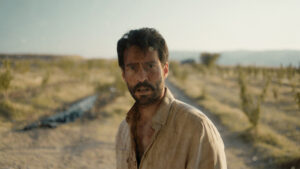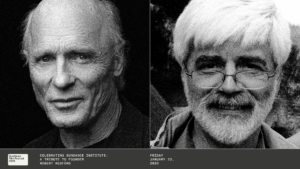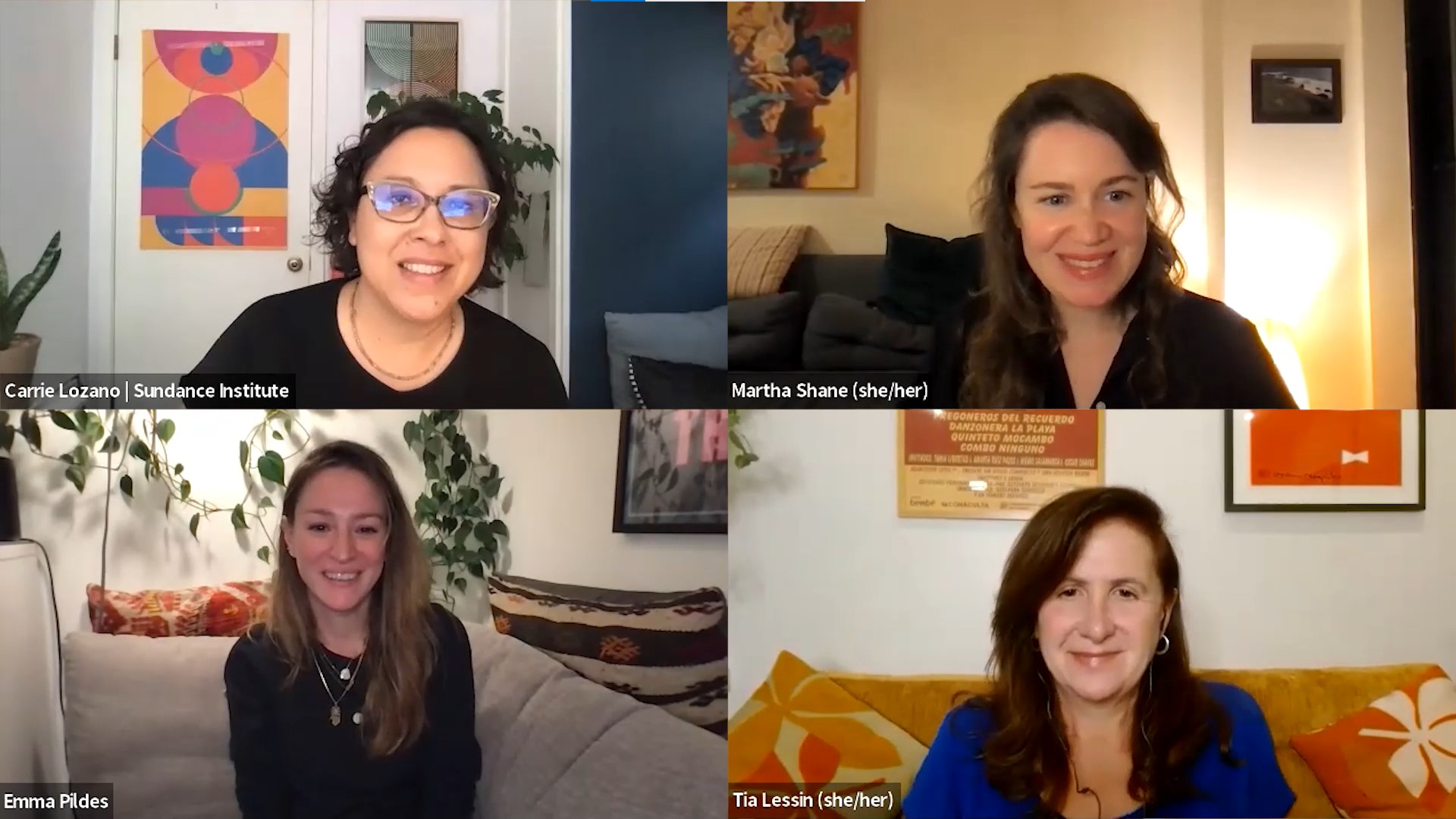By Stephanie Ornelas
Documentary storytellers are often on the forefront of major societal issues, and in light of the Supreme Court’s reversal of Roe v. Wade this summer, women’s rights have taken on a renewed energy and urgency. Sundance Collab’s recent online Spotlight Event, Change Through Storytelling: Reproductive Justice with Emma Pildes, Tia Lessin, and Martha Shane, is centered around films that tell the true stories of what life was like for many women in this country when abortions were illegal.
Shane, Lessin, and Pildes all met virtually with Carrie Lozano, Director of Sundance Institute’s Documentary Film Program and Artist Programs, to discuss the backstories of their films and what made them decide to pursue them as documentaries. They also talk about why these films are so important when it comes to spreading awareness about issues surrounding reproductive health and rights — especially right now. As they revisited some of the most impactful scenes from their own projects, the directors had a candid discussion about how films like theirs can play a huge role in bringing important events to light.
The Janes (2022 Sundance Film Festival) is “a window to the past,” as co-director Tia Lessin says. The documentary is a perfect example of how drastically different things were for so many women back when they lost their rights to abortion and control of their reproductive health. It tells the story of a group of women activists in Chicago, Illinois, who went by the name of “Jane,” as they built an underground network to help provide low-cost and free illegal abortions to an estimated 11,000 women.
“Many people don’t know about [the Janes] and we saw it as something we could contribute to what seemed to be ramping up,” says Emma Pildes, co-director of The Janes. “A new administration had taken office and we felt very strongly that if we could give these women a platform to bear witness to what this country looked like the last time abortion was illegal, that could be a profound contribution to remind people. Because we’re at a place [now] where it’s 50 years of people not knowing what that looks like or feels like in the true sense.”
With After Tiller (2013 Sundance Film Festival), director Martha Shane was focused on giving a voice to the doctors performing these procedures and afraid to speak out. Through interviews and intimate footage, audiences are given a unique point of view from the perspective of four different doctors.
“I recognize what I do. And, at times, I struggle. At times, I don’t. But I always come back to the woman and what she’s going through.”
This line from Dr. Shelly Sterling is from a powerful scene from the documentary that follows doctors willing to perform third-trimester abortions after the assassination of their colleague, Dr. George Tiller, in Wichita, Kansas.
“My co-director and I were watching the news coverage at the time and there are a lot of interesting details we learned through that: that he was a father of four and he’d been murdered in church,” says Shane. “At first we thought maybe we should make a film about Dr. Tiller. And then we started asking, ‘Who was still doing this work after this doctor was murdered?’”
Shane initially only knew about two doctors willing to speak. She later on found out that there had been two more who worked closely with Dr. Tiller in Wichita who were going to continue this work. “And so those became the four core stories that we told. We were really motivated by this idea of giving them a voice — these doctors who really had not wanted to go public for reasons of safety. It was all about giving them a voice,” Shane explains.
Something that’s often viewed as a challenge is how we discuss a topic as heavy as reproductive rights with an audience member who might be pro-choice or with a new generation of audience members who might not be in the know, as Pildes described.
“Embracing the complexity [of the subject] is the way to go,” says Shane. “It just seems to me that trusting that viewers and individuals and voters can handle these films is more effective than trying to paint it as a very simplistic issue.”
More Sundance Festival Films Focused on Reproductive Rights
Films like After Tiller and The Janes help open our eyes to historic events that truly made an impact on women’s rights — moments that we may not have ever known existed if it weren’t for these projects and so many others. And sometimes, all it takes is knowing that these films exist and where to find them.
Back in June, we published a series on reproductive health and rights, looking at the powerful Q&A panels that followed their premieres at the 2022 Sundance Film Festival — The Janes is one of them. We also heard from the creators of Call Jane, Happening, and Aftershock, and we examined 20 films centered on reproductive rights that premiered at past Sundance Film Festivals and/or were supported by the Sundance Institute.
If you’re looking for more insight or a better understanding when it comes to women’s health and rights, add these films to your must-watch list and sign up for Sundance Collab to watch the full webinar for free.
To be a part of these insightful conversations, become a Collab All Access member and enroll in online courses like: Master Class: Social Activism Through Storytelling.

Give Me the Backstory: Get to Know Alireza Khatami, the Director of “The Things You Kill”
By Bailey Pennick One of the most exciting things about the Sundance Film Festival is having a front-row seat for the bright future of independent

2026 Sundance Film Festival Annual Event Celebrating Sundance Institute: A Tribute to Founder Robert Redford
L–R: Ed Harris, Gyula Gazdag Inaugural Robert Redford Luminary Award to Honor Ed Harris and Gyula Gazdag PARK CITY, UTAH, NOVEMBER 12, 2026 — The

“Rebuilding” Reminds Us to Seek the Balm of Community
(L–R) Kali Reis, Josh O’Connor, and Max Walker-Silverman attend the 2025 Sundance Film Festival premiere of “Rebuilding” at Eccles Theatre on January 26, 2025, in





